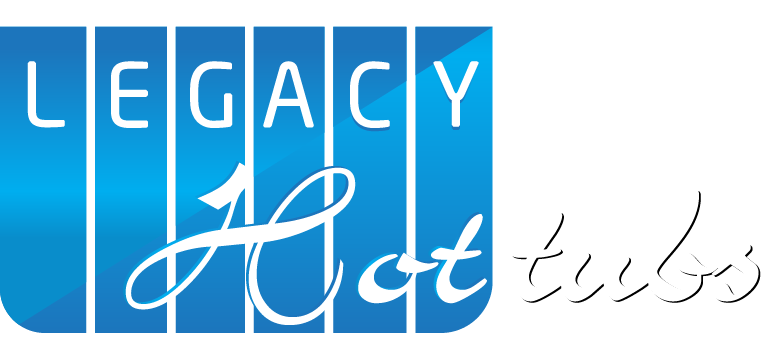FAQs
YOU ASK, WE ANSWER
QUESTIONS AND ANSWERS
Frequently Asked Questions
Whether you already have a hot tub or you’re considering purchasing one, you may have questions. This list of frequently asked questions about hot tubs is meant to assist you with clear and simple solutions. If the answer to your question is not below, please feel free to get in touch with our team of experts at our Sarasota showroom. They will happily assist you.
General Hot Tub FAQs
Making the decision to buy a hot tub is a big one. It’s not something you do every day, after all. Your lifestyle can have a significant impact on the decision to purchase a hot tub. Before making the decision, ask yourself these following questions:
- Where in my backyard will I install a hot tub?
- Will the hot tub be for my entire family, or just for me?
- Will I benefit from fewer aches and pains, better sleep and reduced stress?
- Will I enjoy the convenience of access to hydromassage in the comfort of my own home?
- Will my family benefit from the additional family time in the spa?
If you said yes to one or more of the questions above, a hot tub might be right for you! Speak with one of our team members to learn more about the prices, sizes and brands available to you.
The size of your hot tub should reflect your intended use for it. What are the top hot tub sizes? Will it cater to the needs of the entire family? Is it meant just for you and your significant other? Or do you enjoy hosting elaborate backyard parties? Your lifestyle and layout of your backyard can help you determine if you would like to invest in a smaller or larger hot tub.
Most hot tub brands have models available in the following sizes and capacities: 2-3 seats, 4-5 seats, 5-6 seats, 6 or more seats. For a better idea of how big or small our hot tubs are,visit our showroom person today.
Hydrotherapy is a therapeutic technique that harnesses the healing properties of water. What is hydrotherapy? The combination of heat, buoyancy, and massage helps to relax muscles, ease sore joints, improve circulation, and reduce muscle tension. Used by healthcare professionals all around the world, hydrotherapy can help to improve sleep patterns, reduce stress, ease aches and pains, aid in post-injury recovery, and soothe sore joints, among many other health benefits.
Hot Tub Maintenance FAQs
-
- Test your hot tub water with test strips once or twice a week.
- Treat your hot tub water accordingly based on the readings from the test strips.
- Clean the filter every two weeks with water from the hose.
- Drain, clean, and fill the hot tub once every three to four months.
A clean and functioning filter is key to an operational filtration system, as it catches and removes dirt and debris, keeping the water clean and free of impurities. We recommend rinsing the filter every two weeks with fresh water from the hose or kitchen sink. You can also use this time to spray it down with a filter cleaner and then continue to rinse.
Filter cleaning nozzles are available that can be attached to the end of a hose, which can help water to better reach the nooks and crannies of your filter. Soak your filter overnight in a bucket filled with water and a small amount of filter cleaner every two months to remove deep-down debris. We recommend replacing your hot tub filter annually to ensure a fully functional filtration system.
General Swim Spa FAQs
Hot tubs are designed for relaxation, lounging, and socialization. They are usually equipped with several ergonomic seats and hydromassage jets for optimum relaxation. They can range in size from small 2-seater spas to 7+ seats.
Conversely, swim spas are a mix between a swimming pool and a hot tub. They are designed to offer both relaxation and recreation. Swim spas are typically larger, roughly 12-18 ft long, and are equipped with powerful jets that create a strong current to swim, walk, or water run against. Additionally, swim spas also contain hydrotherapy seating so that you can experience enhanced relaxation and recovery after exercise.
General Sauna FAQs
- Stress reduction and enhanced relaxation
- Better sleep
- Reduced risk of heart attacks, strokes, and hypertension
- Improved cardiovascular circulation
- Alzheimer’s Disease prevention
- Improved recovery after exercise
- Antidepressant effects
- Reduction in chronic fatigue
- Decreased muscle and joint stiffness
- Chronic pain relief
Generally, saunas are safe to use when you’re sick, unless you have a pre-existing health condition like asthma, heart disease, epilepsy, or abnormal blood pressure.
Using a sauna can relieve cold symptoms, but it may not be effective in treating your cold. If you choose to use a sauna when you have a cold, follow these tips to ensure your safety:
- Limit your time in the sauna to 5-15 minutes
- Avoid alcohol, caffeine, salty food, and other food/beverages that cause dehydration before and after using the sauna
- Rehydrate with 2-4 cups of water after using the sauna
- Leave the sauna immediately if you start to feel unwell
GET INSPIRED
Inspiration Gallery
Discover how you can transform your backyard into the tropical paradise that you’ve always dreamed of. It all begins with an idea.

